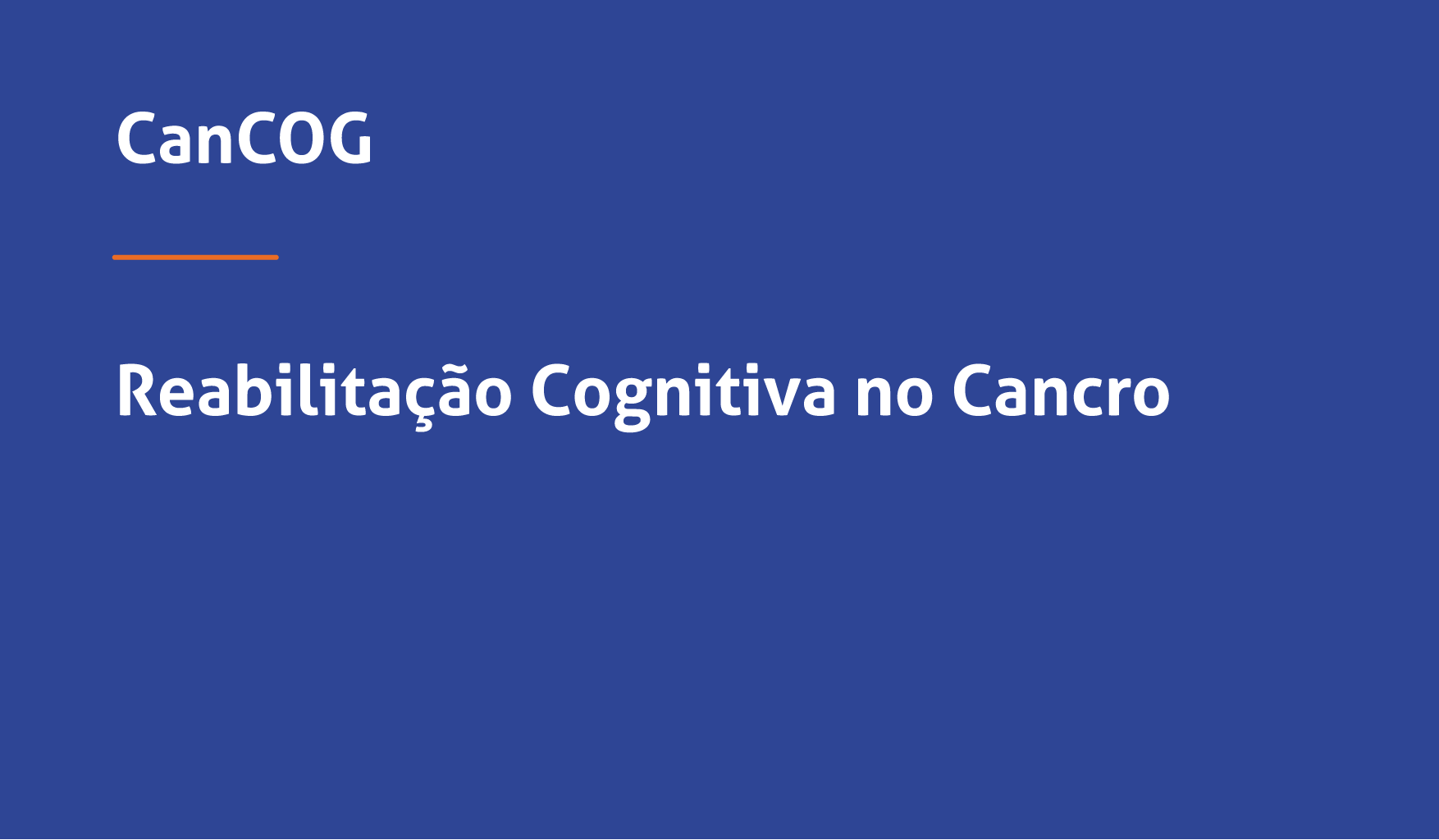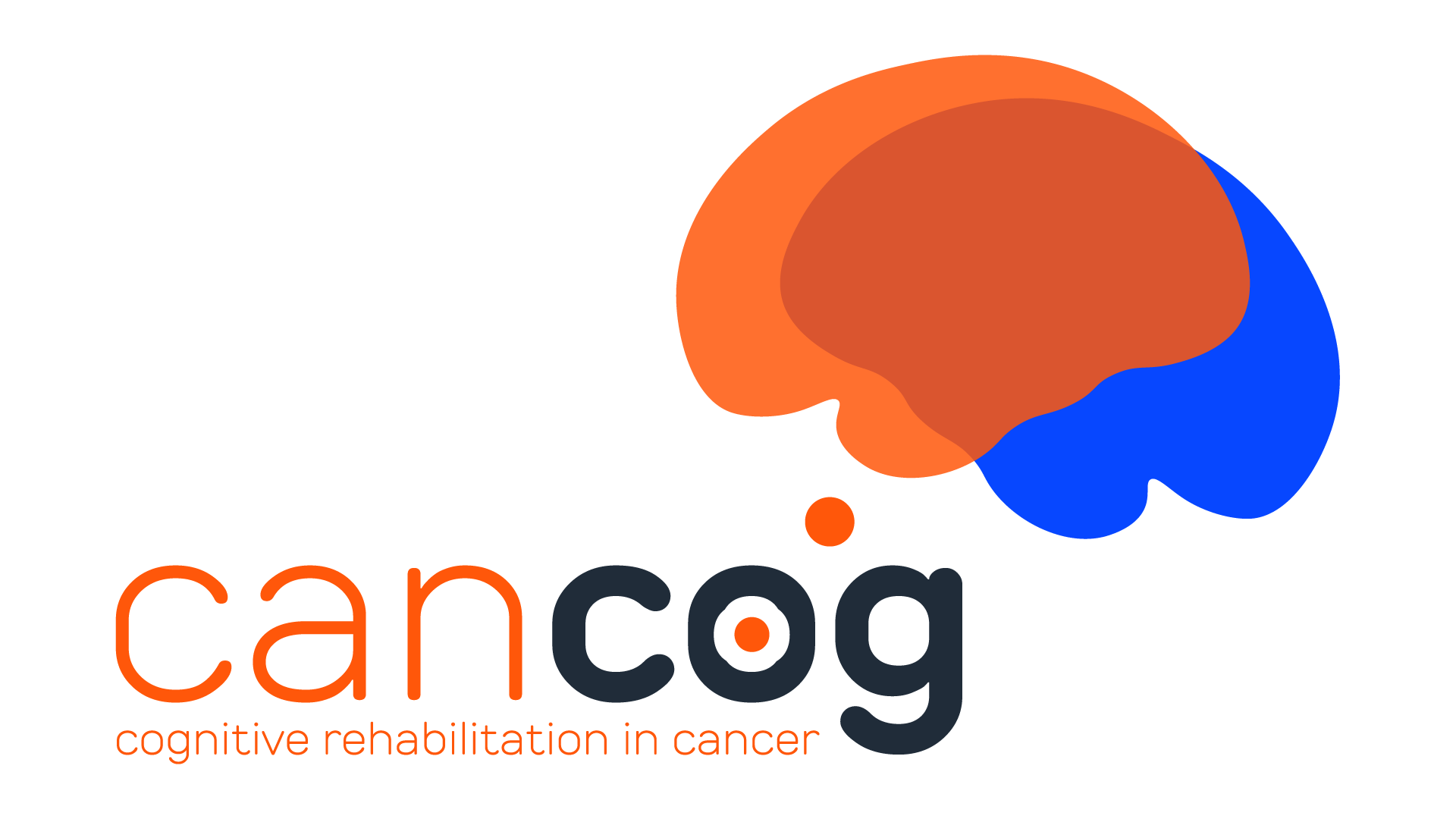Project Description
CanCOG – Reabilitação Cognitiva no Cancro
Abstract
The project CanCOG – Reabilitação Cognitiva no Cancro (Cognitive Rehabilitation in Cancer) aims to provide a digital cognitive rehabilitation platform specifically for cancer survivors to improve cognitive skills. The intervention is the result of the cultural adaptation of a program developed at the University of California, Los Angeles (UCLA), in the United States of America – the UCLA Cognitive Rehabilitation Intervention Program for Cancer Survivors – which shows evidence of effectiveness in reducing cognitive complaints reported by this population.
This project is led by a team of researchers from the Department of Education and Psychology of the University of Aveiro, the Center for Research in Health Technologies and Services (CINTESIS.UA) and the William James Center for Research (WJCR.UA), arising from an international collaboration with UCLA. It has partnered with institutions that support cancer patients and their families, as well as health professionals, namely the Regional Center of the Portuguese League Against Cancer and the Portuguese Academy of Psycho-Oncology.
Abstract
Cancer-related cognitive impairment is one of the most frequent and worrying adverse side effects experienced by cancer survivors. Although this impairment may be subtle, it is intense enough to negatively interfere with daily functioning and quality of life, particularly at the social, work and family levels.
Increasing survival rates and the number of people living with the adverse side effects of long-term cancer treatments have led to a growing need to identify, develop, and test interventions that are effective in alleviating or preventing the development of cognitive impairment. Cognitive rehabilitation is considered the first-line intervention for cancer-associated cognitive impairment, and has been shown to be effective in improving cognitive functioning.
It was in this context of the need to develop specific interventions for cognitive complaints reported by cancer survivors that, in 2008, the UCLA team began the development and evaluation of the effectiveness of the UCLA Cognitive Rehabilitation Intervention Program for Cancer Survivors. This program was the product of years of clinical and research experience, and is currently being adapted for dissemination as an accredited intervention for hospitals in the United States. The program consists of five sessions based on evidence-based cognitive rehabilitation, consisting of psychoeducation about cognitive functioning and cognitive training focused on the most common complaints that cancer survivors report: attention (weeks 1 and 2), executive functions (week 3), and memory (week 4); it also includes a session to review and systematize information (week 5). Each session lasts approximately 2 hours and is held weekly, consisting of goal setting, teaching compensatory strategies, and cognitive training exercises to be performed in the session and at home.
In recent times, web-based interventions have emerged in the field of cognitive rehabilitation as a potentially valid form of intervention for cancer survivors who experience changes in cognitive skills. Thus, the CanCOG – Online Cognitive Rehabilitation Program for Cancer is the result of the Portuguese cultural adaptation, in digital format, of the UCLA Cognitive Rehabilitation Intervention Program for Cancer Survivors.
Through collaborative work between researchers, clinicians and cancer survivors, the research project CanCOG – Cognitive Rehabilitation in Cancer comprises three main objectives or phases:
- Phase 1 – Translation and cultural adaptation of the UCLA Cognitive Rehabilitation Intervention Program for Cancer Survivors into Portugal, following international guidelines for the cultural adaptation of evidence-based interventions.
- Phase 2 – Development of the digital platform, adapting the five face-to-face sessions that make up the original program into five online modules – the CanCOG program – by conducting focus groups with cancer survivors and experts. The usability of the interface and the experience of cancer survivors with CanCOG will also be tested.
- Phase 3 – Intervention study that aims to evaluate the effectiveness of the CanCOG program in improving cognitive abilities, work-related variables, and psychosocial indicators, compared to no intervention (control condition).
Considering that many cancer survivors report cognitive problems, this intervention has the potential to provide cognitive rehabilitation and improve the care of this population. Ultimately, this project aims to provide a useful tool for healthcare professionals working with cancer survivors. The results of this project will contribute to existing research in digital technologies applied to cognitive rehabilitation and health while providing the Portuguese oncology population with access to an empirically validated digital intervention for cancer-related cognitive impairment.
Funding Institution
Portuguese Foundation for Science and Technology (FCT), Center for Health Technology and Services Research (CINTESIS.UA)
Global Budget
n/d
CINTESIS Budget
n/d
Reference
Portuguese Foundation for Science and Technology (FCT: SFRH/BD/138785/2018), Center for Health Technology and Services Research (CINTESIS.UA: UIDB/4255/2020)
Duração
01/08/2019 to 30/09/2023 (50 months)
CINTESIS Researchers involved
Ana Filipa Oliveira, Isabel M. Santos, Ana Torres, Anabela Pereira, Sara Monteiro, Ana Cláudia Bártolo, Helena Mendonça Sousa, Rita Tavares, Milaydis Sosa Napolskij
Official Website
http://cancog.web.ua.pt/


